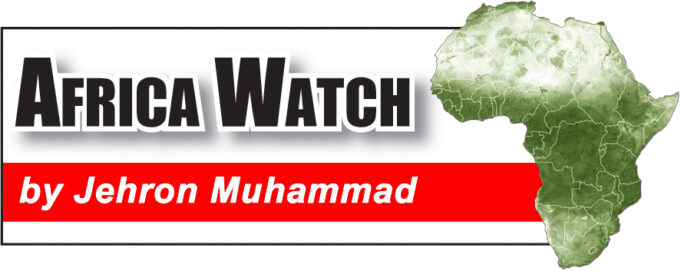Environment ministers from nearly 50 countries gathered in the Democratic Republic of Congo for the second “pre-COP27” climate summit. The first pre-climate summit occurred in Rotterdam in the Netherlands, with African leaders speaking to empty seats, due to the failure to show up by most European heads of state.
COP or Conference of the Parties is the decision-making forum of the United Nations Framework Convention on Climate Change (UNFCCC), which brings signatory governments together once a year to discuss and agree how to jointly address climate change and its impacts. COP27 will be held in November in Sharm El Sheikh, Egypt.
At the first pre-summit, President of the Democratic Republic of the Congo, Felix Tshisekedi, highlighted the absence of the main perpetrators of the world’s climate change emergency.
He noted that at some point, since Western nations, including Europe and the U.S., are the world’s “biggest polluters,” they “would have had to answer to our questions.” Tshisekedi observed, “The African continent has the smallest impact on climate change, but paradoxically suffers the majority of its consequences.”
During the recent 77th United Nations General Assembly, African leaders again took Western powers to task.
“It is time for multilateralism to reflect the voice of the farmers, represent the hopes of villagers, champion the aspirations of pastoralists, defend the rights of fisherfolk, express the dreams of traders, respect the wishes of workers, and indeed, protect the welfare of all peoples of the Global South,” said William Ruto, president of Kenya.
At the second pre-COP27 summit which began Oct. 3, host nation Democratic Republic of Congo, urged rich countries, in particular, to increase funding to combat climate change.
During this final meeting ahead of the COP27 climate summit in Egypt, Congolese Environment Minister Eve Bazaiba called on countries to respect past financial pledges and also to endorse proposals to compensate less developed economies for climate-inflicted damage, reported DWcom.
“Unless a global effort is made … no one will escape,” Bazaiba said in Kinshasa. “We all breathe the same air.”
Egyptian Foreign Minister Sameh Shoukry stressed the need for more money and mentioned a (broken) promise dating back to COP15 in Copenhagen in 2009. At that gathering a promise was made to provide developing countries with $100 billion per year for projects to combat climate change.
Bazaiba argued that such investments should no longer be classified as development aid by wealthier nations but rather as an investment in humanity’s future.
One of the biggest voices in the climate change discussion and criticizer of the global-North’s reluctance to honor their financial pledges made to the global-South, is the African Development Bank.
On its website, the African Development Bank reported several productive engagements around its strategic priorities at the recent 77th United Nations General Assembly meetings in New York. One of its highlights included an urgent call for increased financing to mitigate the effects of climate change and food insecurity.
African Development Bank group president, Dr. Akinwumi Adesina, led the bank’s delegation to the meetings and played an active part in discussions leading to an international declaration to end malnutrition and stunting.
COP27, or “the African COP” as it is being called, presents an unprecedented opportunity for a unified African voice to demand that the global community move beyond talk to concrete action on financing for climate adaptation and mitigation.
John Kerry is the U.S. special presidential envoy for climate. Speaking at the second ministerial meeting, Kerry’s words were unambiguous, though whether they came with teeth is anyone’s guess. Regarding the U.S. being the world’s biggest hinderance to climate change, he stated: “We are late. We must act,” Kerry said. “I’m fed up with saying the same thing too many times in the same meetings. Business as usual is the collective enemy. It’s time for action,” he told the meeting.
Adesina echoed this call for urgent action. He warned: “Africa is suffering, Africa is choking, and is in serious financial distress for what it did not cause. There must be a greater sense of urgency, not in talking, but in doing and delivering resources that the continent needs very desperately.”
Congo defending use of fossil fuel also argued that it can be a “solution country” for climate change by protecting its vast rainforests, which act as a carbon sink. But the central African nation also defended its controversial auction of various oil and gas exploration rights last year—ignoring environmentalists’ objections—saying that they could alleviate poverty.
“What should we do in this circumstance?” Environment Minister Bazaiba asked. “Let our children and small children die of hunger? As much as we need oxygen, we also need bread.”
Congo has also said it will try to minimize the environmental impact by using modern drilling methods and tight regulations. Follow @JehronMuhammad on Twitter













